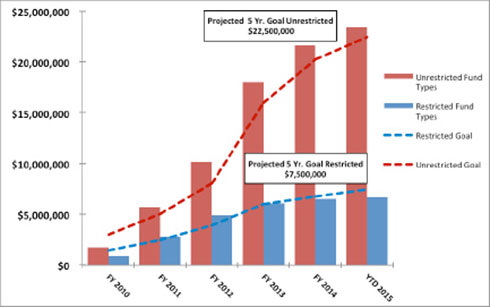Procurement Services exceeds $30 million savings goal
By Nancy Doolittle

By analyzing expenses, standardizing supplies, consolidating vendors and negotiating discounts, Procurement Services is saving Cornell more than $30 million annually.
Joanne DeStefano, vice president for finance and chief financial officer, recently announced that the Procurement Initiative has saved the university $30.1 million in annual non-salary budget dollars. These savings exceed the goal established during the Reimagining Cornell strategic planning initiative that began in 2009.
Surpassing the goal can be attributed to the sustained efforts of procurement staff and all those across campus who purchase goods and services for Cornell, DeStefano said. “This is a huge accomplishment. The procurement team brought creativity, dedication and hard work to this initiative and steadily built partnerships across Cornell and between the university and outside vendors to identify savings opportunities and streamline operations,” she said.
DeStefano is one of three project sponsors who helped the procurement team gain the support of campus stakeholders. Joseph Thomas, the Anne and Elmer Lindseth Dean Emeritus of the Samuel Curtis Johnson Graduate School of Management, and Jan Nyrop, senior associate dean in the College of Agriculture and Life Sciences, also sponsored the initiative.
Tom Romantic, senior director of procurement services, explained that the team began its work by “tackling those areas that would be easiest to standardize without inconveniencing Cornell’s faculty and staff.” In the first phase, the procurement staff analyzed Cornell’s purchasing habits using the software SpendViz and visiting offices and labs across campus.
“We looked at the items that offices and laboratories frequently ordered, such as toners, lighting, janitorial supplies and glassware, and through e-SHOP and our preferred suppliers found ways to realize savings and quantity discounts, saving approximately $8.4 million annually,” Romantic said. Further cost savings came through reverse auctions, in which suppliers competed online to win Cornell’s business, he said.
Phase 2 involved changes in university purchasing on a complex, multiyear scale. For instance, the university chose two “strategic preferred suppliers.” The first was VWR International, a distributor of scientific equipment and laboratory supplies, including chemicals, gloves, surgical masks and glassware.
A broad distributor for smaller suppliers, VWR provided deep discounts on more than 5,400 products, said Cindy Jefferson, director of strategic sourcing in Procurement Services. The arrangement allows campus community members to “access the products and manufacturers they prefer, while funneling orders through one e-SHOP supplier,” she said. Other benefits include improved customer service, fewer delivery trucks on campus, and reduced freight and delivery expenses, she added.
Further savings came from standardizing computer-related purchasing. Working with offices across campus, procurement and CIT staff determined that four configurations for Windows computers meet the needs of approximately 95 percent of Windows users, and chose Dell, the university’s preferred supplier, to offer them at a discount. When Dell was designated Cornell’s second strategic preferred supplier, the company established a parts locker on the Ithaca campus, brought two technicians on-site and provided consulting services for desktop support. Through these efforts, the university has saved in computer equipment, maintenance, upgrades and support costs, while streamlining ordering and delivery, Jefferson said.
Procurement Services also worked with many colleagues across campus to identify opportunities for savings. These cross-functional teams facilitated savings by awarding Vasco Brands with a contract for all janitorial products and tissue paper; Maguire Automotive, for new vehicle purchases, repairs and service; Maines Paper and Food Service for supplying Cornell Dining and hotel facilities; W.B. Mason for office supplies and copy paper; and Eastern Managed Print Networks and Ricoh USA for multi-function devices to replace printers and copy machines.
At the same time, Procurement streamlined processes to make purchasing easier through the Procurement Gateway, enhanced e-SHOP, and simplified contracting for catering and event space rental.
“As we look forward, we still see opportunities for process improvement and savings, although not on the magnitude we have just experienced,” said Romantic. “We are committed to continuing to work with our partners across campus and our vendors off campus to streamline processes, improve the procurement experience for campus customers and pursue leading-edge procurement strategies,” he said.
Media Contact
Get Cornell news delivered right to your inbox.
Subscribe